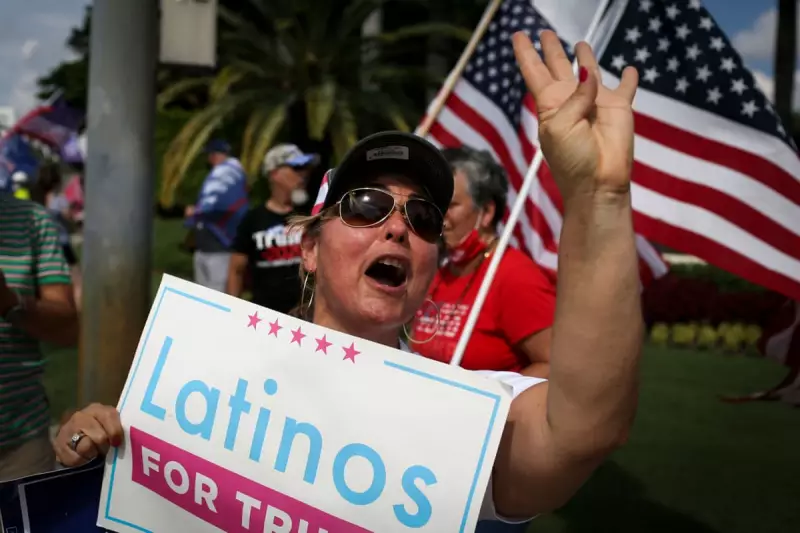
In a dramatic shift that's sending shockwaves through American politics, Donald Trump has achieved his highest-ever approval rating among Hispanic voters, according to groundbreaking new research.
Breaking Political Boundaries
The latest polling data reveals a remarkable transformation in voter sentiment, with Trump's approval among Hispanic Americans reaching levels that defy conventional political wisdom. This surge represents a significant departure from historical voting patterns and could reshape the electoral landscape.
The Numbers Behind the Trend
Detailed analysis of the polling shows consistent growth in Trump's support across multiple demographic segments within the Hispanic community. The data indicates particularly strong approval among specific age groups and geographic regions, suggesting a fundamental realignment in political allegiances.
What's Driving the Change?
Political analysts point to several key factors contributing to this unexpected surge:
- Economic policies resonating with small business owners
- Cultural messaging that aligns with traditional values
- Immigration stance appealing to legal immigrants
- Perceived economic stability under previous administration
Implications for the Election
This polling data suggests potential vulnerabilities for Democratic candidates in traditionally safe districts. The growing Hispanic support could prove decisive in key battleground states where even small shifts in voter preference can determine electoral outcomes.
Campaign strategists from both parties are reportedly scrambling to adjust their outreach efforts in response to these findings, with some acknowledging they may have misread the political mood among this crucial voting bloc.
A New Political Reality
As the election approaches, these numbers indicate that old assumptions about ethnic voting blocs may no longer apply. The data suggests Hispanic voters are evaluating candidates through a more complex lens than previously understood, considering economic, cultural, and social factors in their political decisions.
This development represents one of the most significant political stories of the current election cycle, with potential long-term consequences for how parties approach voter outreach and policy development.





